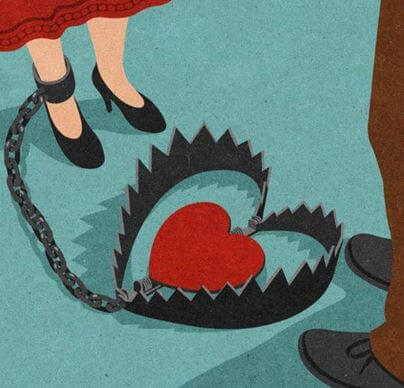Is a Lack of Self-Esteem the Root of All Disorders?

Self-esteem is the part of our self-concept which is makes our emotional skin more or less resistant. Lack of self-esteem keeps us from psychological well-being. The concept of self-love may seem simple. Yet, in reality, it is much more important than we can imagine in regards to happiness.
It’s impossible to be happy if you don’t love yourself. It’s about loving, accepting, approving and appreciating oneself no matter what might happen, or what people say. Regardless of the mistakes we might make or have made. That’s the cornerstone to building a life of satisfaction, joy and fulfillment.
We don’t exactly know why human beings, in general, love themselves so little. It seems to be that it has something to do with one’s ego and with the longing to stand out from the rest of humankind. When you want to be special or better than the rest, you end up making yourself bitter. Because, at the end of the day, you realize that you also have flaws and limitations and that they’re not as little as you thought they were.
This produces a very polarizing thought- either black or white– within your mind. It ends up creating a negative inner dialogue. One along the lines of: “If I don’t stand out, then I’m not worth absolutely anything.”
Therefore, the key to maintaining a healthy self-esteem is to not attempt to ever give ourselves too much value. Instead, attempt to always attribute a general worth, common to all human beings.
A lack of self-esteem and its link to some disorders

If you observe some classical psychological disorders, you would notice right away that their origin is greatly due to a lack of love towards oneself. This lack of esteem will later on project itself as dysfunctional beliefs, negative emotions and counterproductive behaviors which submerge the individual into a closed circle.
In order to visualize this better, here are some examples for you to analyze:
Anxiety disorder
Anxious people are characterized by an intense fear of the future. Their thoughts are always catastrophic, since they think that if they perform any action, it may fail or something terrible could happen. It’s obvious that underneath this fear there is an immense sense of insecurity. They don’t trust in their own abilities, nor do they believe themselves capable of facing life’s adversities on their own.
They require someone else’s assistance for nearly everything. Someone to solve their problems or accompany them. This way their fear is reduced. Their train of thought is along the lines of: “You’re worthless. By yourself you can’t and don’t know how to do anything. Therefore, you need someone better than you to do it for you”.
Obsessive compulsive disorder (OCD)
This is a “natural” outlet for perfectionism that is taken to the extreme. When someone is a perfectionist, it’s because they think they must do everything without making a single mistake. This is nothing more than the result, as we’ve mentioned before, of wanting to be distinguished. These people have doubts, which repeat themselves over and over. They have a hard time making decisions, since it’s essential that each decision lead them towards the correct path. Finally, they crumble when they perceive that this longed perfection is unattainable.
Anorexia and Bulimia
In these cases, the individual’s lack of self-esteem is specially evident. These people believe that they would be worth much more is their physique met the unrealistic canons established by the prevailing society. Therefore, they place their personal value on a physique they don’t like.
Unfortunately, these individuals won’t love themselves until their bodies are decent, appropriate or perfect according to them. The obsession is so great that, just like people with OCD, they seek an invented and impossible physical perfection which ends up deteriorating their corporal image in an astounding way. This is the complete opposite of the objective they were going for.
Emotional dependence
When you think that others are worth more than you or that you’re not worthy of esteem, it’s very likely that you’ll end up being emotionally dependent. You might tolerate behaviors from other people that you otherwise wouldn’t. The thoughts of the dependent individual sound something like this: “Since I’m worthless and undeserving of love, I’ll settle for your crumbs and am at the mercy of what you want to do to or with me”.

Depression
The lack of love is also fairly visible here. Depressive people see themselves as “very small”, without any type of worth. Therefore, in the face of this barrier, they delay or stall the implementation of objectives.
These people think that nothing they do will go well. In fact, they reach the point in which they don’t see the point in even trying.
They feel guilty, miserable, like victims. They convince themselves every day that they are worthless and, therefore, that no one will ever love them.
We could mention many more disorders: ones linked to impulse control, ones used as a way of filling inner voids, personality disorders, etc. We can easily see that the common denominator in all of them is a lack of love and that if we, as professionals, don’t work on acceptance in an efficient way, healing these disorders will become impossible. In fact, we would forever remain on the surface of the issue.
Taking on self-acceptance as our final objective makes us feel freer. Failures lose their importance, as well as criticism or foreign rejections. Perfection stops being sought. We will allow ourselves to act based on our own personal criteria, regardless of everything else.
This text is provided for informational purposes only and does not replace consultation with a professional. If in doubt, consult your specialist.








